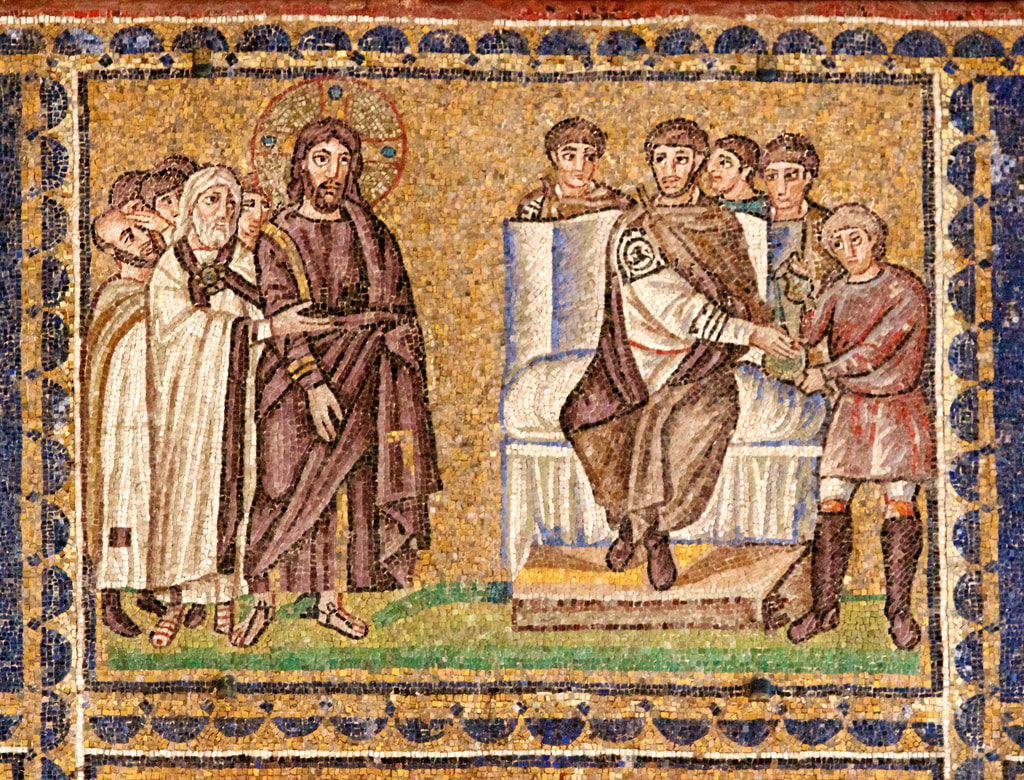I think Pilate gets passed by so often because we can empathize with his position. Whereas the disciples were committed to Jesus and should have been loyal, and whereas the religious leaders were malicious and pursued Christ's blood, Pilate was caught in the middle of something he didn't want to be a part of. He had no loyalty to Jesus, but neither did he hold any malice. He was as impartial a judge as we could hope for in overseeing Jesus's trial. In fact, as we progress through the story, we see Pilate recognize Christ's innocence and attempt to free him using the various means he had at his disposal. To most, it seems like Pilate is a fairly decent guy who is trying to do the right thing, but ends up having to make a difficult decision in order to do his job by maintaining order.
Pilate's situation reminds me of another pilot - Twenty One Pilots, to be exact. Twenty One Pilots is a modern band who derive their name from Arthur Miller's play, "All My Sons." When asked about their name, the lead singer said,
In the play, someone made a decision and they sent out faulty airplane parts during the war and 21 pilots died. The main character, the one who sent those parts out, tried to justify why he sent those parts out. He ultimately ended up committing suicide by the end of the play. It is a constant reminder to us that you have to make the right decision even if it is a hard decision.
I think the reason we give Pilate a pass on his actions is that we all identify the most with him. Like Pilate, we are pragmatists. We understand why he did what he did because we'd probably do the same thing. What Peter and the religious leaders did was openly terrible, and we'd like to think more highly of ourselves than to be a betrayer or a killer. Yet for some reason we fancy the pragmatism of the one who was ultimately responsible for our savior's death as a more acceptable position. More than anyone else in the story of Christ, we identify with Pilate. We are 21st Century Pilates.
You don't have to look very far to see the great evils of more modern pragmatism. Slavery, one of the greatest stains on our nation's conscience, was perpetuated by pragmatists. Sure, the cowards left the institution unassailed and the killers pursued slavery. But it was the pragmatists which propped it up and allowed it to keep going for a hundred years. While the Quakers and the Underground Railroad housed and loved slaves at great risk to themselves, political pragmatists drafted the Missouri Compromise and the 3/5 Compromise which supported keping some men and women in chains and propagating slavery in new territories. The Union was more important than the innocent. Pragmatists in modernity are no different than those in the days of Pilate. For the pragmatist, no person is worth the price of disorder in their system, whether that system is national or supernatural.
Like Pilate, and like our forefathers, we 21st Century pragmatists offer Jesus up to beatings and scourgings, hopeful that such morsels would be sufficient to abate the bloodthirsty evil which desires more blood. We mar Jesus through our moral compromises, hopeful that through them, we will be able to calm the crowds and gain some sort of advantage over our society, typically through politics. When we've perpetrated as much harm as we're willing to do to our innocent savior - when we've compromised ourselves as far as we're willing to go - only then do we give society over to itself and wash our hands of what follows. But the damage is already done. We've marred the name of Christ and we've ensured his crucifixion. He is now so disfigured from our beatings that onlookers have little choice but to look on him and mock him. We have compromised the truth of our Lord, and if truth can be compromised, then as Pilate asked, what really is truth, then? It's nothing. It's worthless. And those around us know it.
I am ashamed to say that cultural Christianity has been set on a course to crucify Jesus again, though this time by his own followers, crucifying him as a criminal and not as our savior. The world sees what we Christians are willing to compromise. They see what we're willing to do. They see the types of people we're willing to stand behind. They see the self-interest in the issues we emphasize. Sadly, we Christians acknowledge all of these compromises as necessary. We acknowledge our complicity in compromise, yet we somehow think this is a good thing. We're doing it for the greater good, which somehow justifies our moral evil. We call this evil good, wash our hands, then act as if such a thing could absolve us of the evil we're doing. But it can't. We may like to think that what we're doing is sacrificing on behalf of God, but we would do well to remember that God desires obedience over sacrifice (I Sam. 15, Jer. 22). What we so often like to call sacrifice is no such thing. It's disobedient pragmatism. Through such pragmatism we inadvertently disassociate ourselves from God and distort his image to the world. And as was the fate of the main character in "All My Sons," any version of Christianity set on the path of compromise is headed towards suicide.




 RSS Feed
RSS Feed